What can you do with a health science degree? Jobs for a health science major are growing and often provide starting salaries of between $35,000 and $79,000 (Bureau of Labor Statistics).
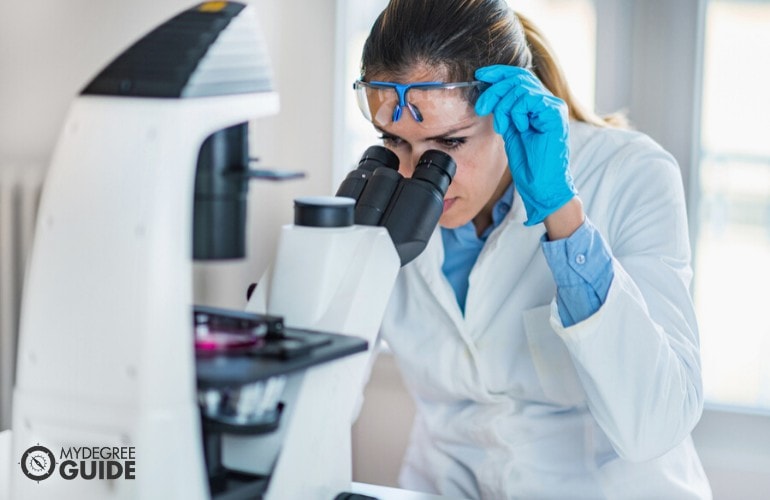
Getting a health science degree online or on-campus may be a great way to secure your financial future and set yourself up on a great career path.
Editorial Listing ShortCode:
Healthcare is one of the most lucrative industries in the world now, and there are a plethora of ways that you can use your degree.
What Is a Health Science Degree?

A health science degree is a foundational platform that can help you build a base for specializing in different health-related fields. You may do quite a bit with your health science degree: from working in medical labs to being an essential advocate for patients.
Although programs vary, many health science degrees focus heavily on the basics of healthcare and the human body. You’ll likely learn common medical terminology, the ethics of medicine, anatomy, and how healthcare works today.
It can be an excellent jumping-off point to move into another specialty with additional schooling, and you can focus the classes you take with your health science degree in the area that you ultimately want to work in.
Editorial Listing ShortCode:
Health science professionals with bachelors degrees in the medical field can work in a number of different medical settings, like laboratories and hospitals. They can also work for government agencies. The array of jobs that you can get with this kind of unique degree are numerous.
Many people opt to work with the technical side of things, looking at careers in healthcare or clinical research administration. Others work as assistants or explore specialized areas of care, like child health or global health threats. The sky is the limit with this degree!
Careers with Health Science Degree
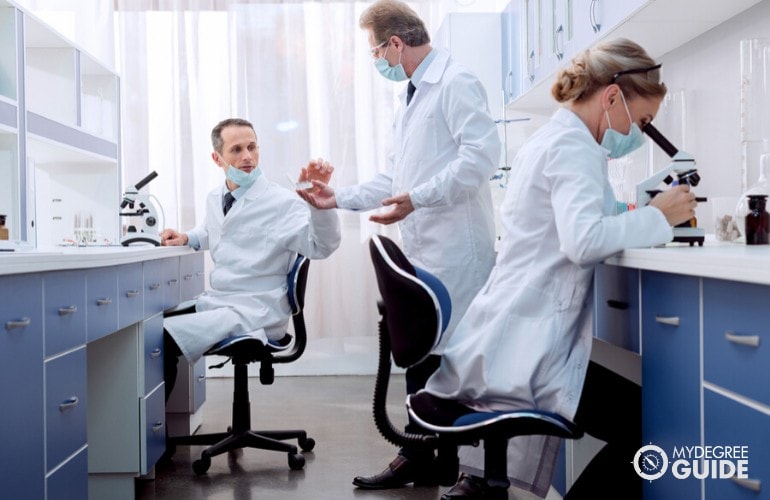
With so much demand for healthcare professionals, it should come as no surprise that there’s plenty of work available with a health science degree. You may be able to write your own ticket with this degree and advance in each and every one of these specialties.
Those more inclined towards the technical side of things may work as cardiovascular technicians or surgical technicians.
Both of these fields require a lot of attention to detail and the ability to understand complex systems, both skills that a health science degree can help you learn. You may also become a dental hygienist or work as a medical lab technician.
Editorial Listing ShortCode:
If you prefer a more hands-on experience, you may leverage your health science degree to become a paramedic or veterinary technician. These fields provide opportunities to work one-on-one with people or animals who need your care.
Good candidates for a health science degree have an interest in medicine and a desire to help their community. The path that you choose is really up to you, and there should be plenty of great options available once you graduate with your degree.
What Jobs Can You Get with a Health Science Degree?

Some of the most popular jobs for a health science major, according to the Bureau of Labor Statistics, include medical assistant, patient service representative, and lab technician.
Medical Assistant
Medical assistants work in entry-level positions in the health science field, and usually perform any number of administrative jobs to help physicians, doctors, and nurses perform their duties better.
- Average salary: $35,850
This is an entry-level job that you can pursue right after you complete your health science degree.
Patient Service Representative

This position doesn’t require a health science degree, but having one can certainly help you to get your foot in the door! Patient service representatives act as liaisons between doctors and patients. They help them understand their rights and what’s going on with their treatment.
- Average salary: $35,980
Patient service representatives need to have thick skins and sometimes have to deal with patient complaints.
Medical Lab Technicians
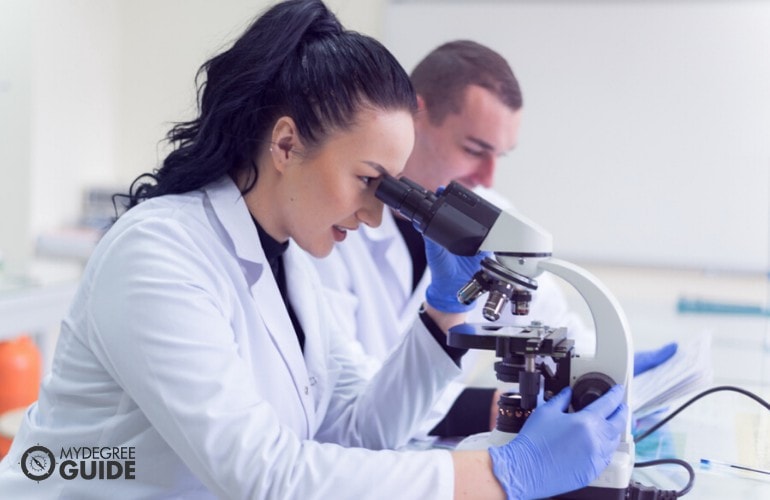
Medical lab technicians are really the ones that get their hands dirty by analyzing test results and making sure that lab equipment is functioning the right way. They sometimes take blood or fluid samples, but often are merely tasked with looking at the results of these test.
- Average salary: $54,180
Some administrative duties might be included in this particular job.
Can You Be a Nurse with a Health Science Degree?
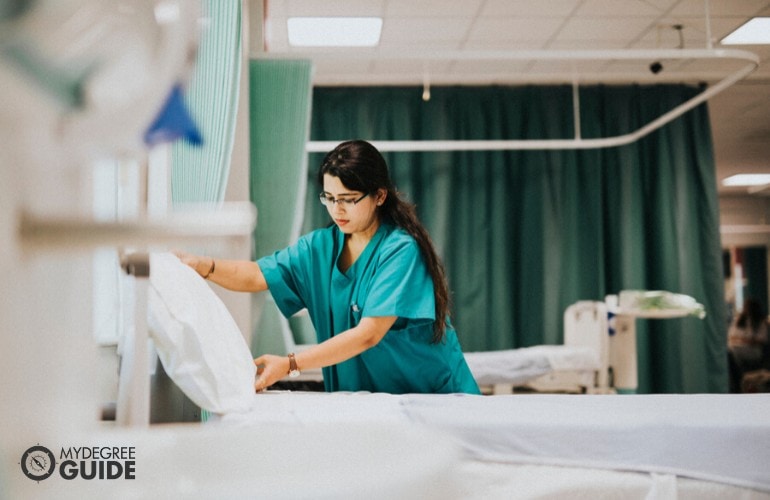
Having a health science degree can possibly aid you in becoming a nurse, but you will need additional certifications if you want to deal directly with patients as a nurse. There are nursing programs that can help you become an RN or an LPN.
A health science degree may allow you to interact with patients, but mostly on an assistant-level.
Editorial Listing ShortCode:
You should learn medical terminology and require some training that may make your nursing program easier, so it can be good to have a health science degree as foundational education if you want to become a nurse.
How Much Do Health Science Get Paid?
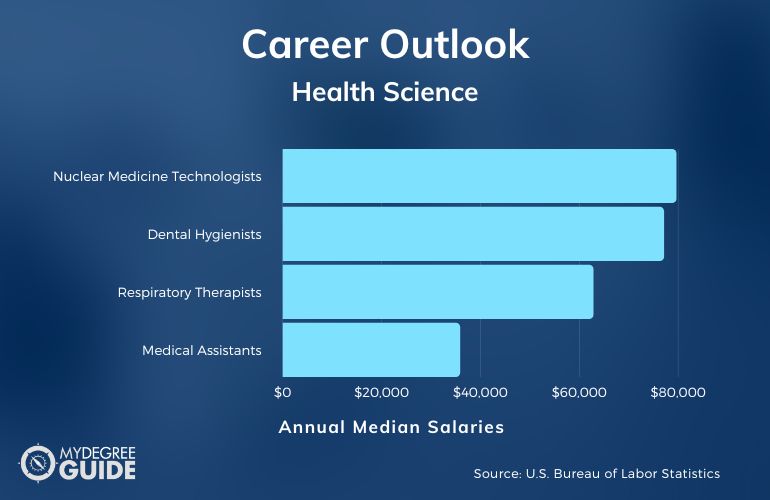
Since there are so many different and exciting career paths associated with a degree in health science, there is a broad spectrum of work that you may do. The payment structure varies by how experienced you are, where you live in the country, and how in-demand your particular career path is.
Generally speaking, you will probably be able to make a lot more money if you focus on a specialized field, have some connections, and get a year or two of experience under your belt.
There are general guidelines for how much you’ll be paid, although, of course, these vary depending on a number of factors.
We’ve included a list of common health sciences careers with the average salary associated with each from the Bureau of Labor Statistics. Use this as a guidepost for deciding if health science is right for you.
| Careers | Annual Median Salary |
| Nuclear Medicine Technologists | $79,590 |
| Dental Hygienists | $77,090 |
| Respiratory Therapists | $62,810 |
| Medical Assistants | $35,850 |
Note that these are the median salaries, not the starting wage.
Graduate School – What Can I Do with a Health Science Degree?
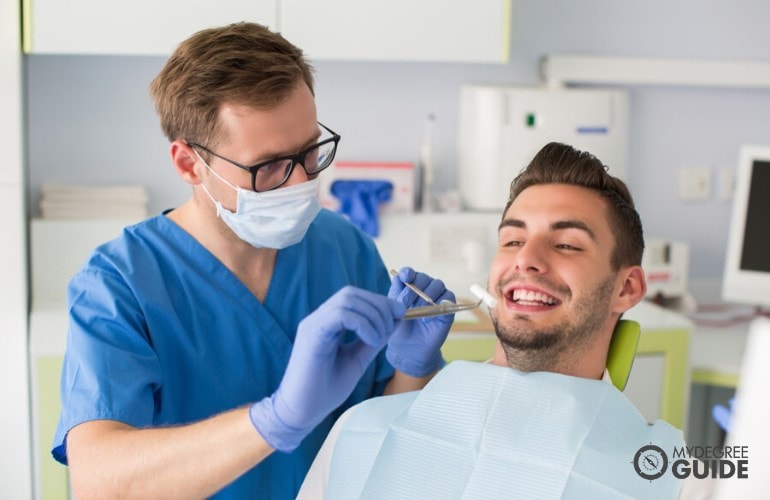
It’s a general rule that the more education you get, the more likely you are to find a better job in your chosen field. Health science is no exception.
Although it’s perfectly serviceable to have a Bachelor’s Degree in Health Sciences, and you are likely to be able to find a good job that you love, it doesn’t hurt to pursue graduate degree options as well.
You can pursue your graduate degree online or in the classroom, although more and more people are opting for online options.
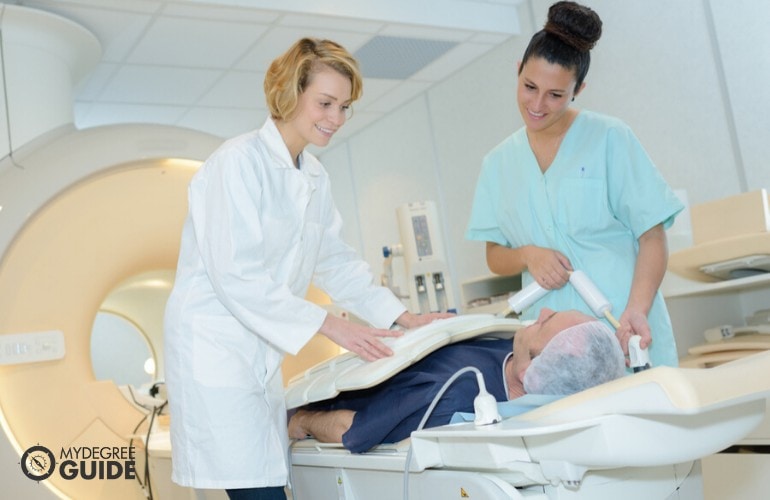
They are often more comfortable to take, and you can determine how much time you would prefer to spend on your classes. If you are working and studying, this may be an excellent option for you.
Similarly, an online accelerated health science degree program is another option especially for those who want to finish their degrees quicker.
One sample graduate degree option is to get a Master of Public Health degree. This degree can allow you to pursue work in global initiatives and higher-end health programs that impact communities.
There are several different places where you can get this degree online, and you can specialize even further into areas of global health, or healthcare specific to vulnerable populations.
Jobs You Can Get with a Health Science Degree After a Master’s Program
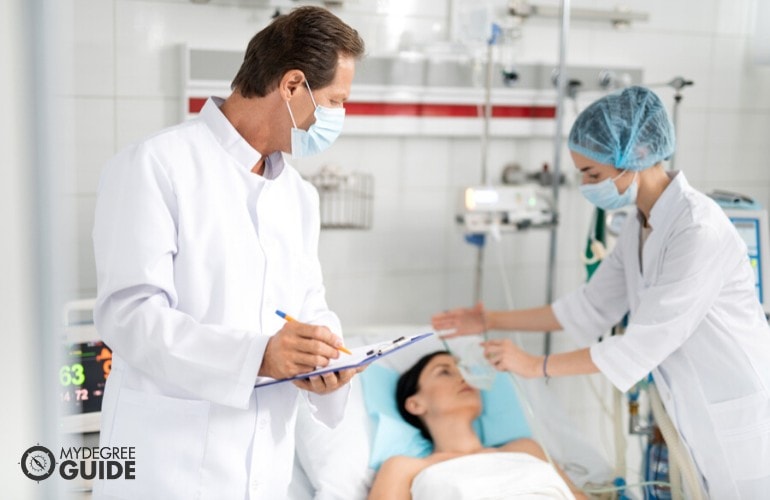
If you decide to go all the way and get your master’s degree in health science, plenty of doors can open for you. There are higher-end jobs available with additional education, and if you’re skilled, you may easily make quite a bit of money.
One of the more popular options is to become an environmental specialist. These people look at global health through an environmental lens and advise people at individual plants and factories on how to provide a better quality of life.
Editorial Listing ShortCode:
On the flip side of the coin are healthcare administrators, who operate basically as high up managers that oversee extensive facilities. These administrators need to be fluent in medical terminology and understand how all aspects of the facility work.
Additionally, you might leverage your degree to work as a program director or an advisor on significant healthcare initiatives and groundbreaking research.
Improving Your Professional Standing – What to Do with a Health Science Degree

Having your degree in health science is just one piece of the puzzle. This is an area where professional networking and building rapport is critical to your success. Fortunately, there are plenty of resources for people who wish to improve their odds of landing their dream job.
You can start off on the path to networking correctly while you are still pursuing your health science degree. Many different student organizations set candidates up with mentors who can guide them along the way.
Phi Delta Chi and Pho Pi Phi are two great options, as are student chapters of the American Association of Pharmaceutical Scientists and the American Optometric Student Association.
Editorial Listing ShortCode:
You can also pursue internships while in school, setting you up with possible jobs once you graduate.
Internships can be a great way to get ahead, so consider volunteering your time at hospitals or organizations that lend themselves specifically to health science, like the Center for Disease Control and Prevention.
There are also additional certifications that you can get, which can expose you to more people who are working in the field and might open up further opportunities for growth.
Health Science Degree Accreditation
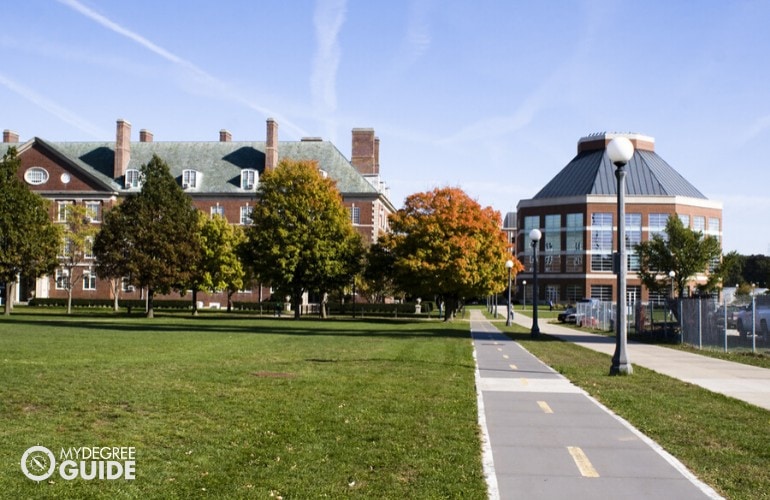
Regional and programmatic accreditation are two things that you want to keep in mind when you are pursuing your health services degree. Essentially, programs that are accredited are usually taken a lot more seriously and can drastically open up your job prospects once you graduate.
Regional accreditation is a long-standing tradition in the United States and usually relies on things like peer-review, where institutions will check each other and vouch for credibility. Once a college or university has been proven to be credible, it’s generally regionally accredited.
Editorial Listing ShortCode:
Programmatic accreditation is similar and often relies on schools proving that they have hit certain milestones in their schooling. Some standards must be met, and usually, programmatic accreditation involves third parties rather than just peer review. This is the critical difference between the two.
You want to get your health science degree from a school that’s both regionally and programmatically accredited.
Financial Aid for a Bachelor’s in Health Science

You may be able to get financial assistance to help you obtain your health science degree. There are two significant options available from the federal government: grants and loans.
Loans are monies that you need to pay back once you have graduated. Grants are usually either need-based or merit-based. Need-based grants are typically given to people who are lower-income and can’t afford to pay for schooling.
Merit-based ones are given to exceptional candidates that show great promise. You can undoubtedly apply for both. There are also specific grants and loans available to minority communities.
It’s best to explore all of your options and only take out the loans that you can reasonably afford to pay back.
Is Health Science a Good Career?

Yes, health science is a good career for many undergraduate students. According to the Bureau of Labor Statistics, healthcare jobs are projected to grow by 15% over the next 10 years, much faster than the average for all occupations. Common careers in this field include medical assistant, respiratory therapist, dental hygienist, and nuclear medicine technologist.
As technology evolves, more and more health care companies and facilities are looking for those who have schooling in both health care and various medical terminology and systems.
These jobs are expected to double or triple over the next few decades, so getting your health science degree may be an excellent investment in your future.

